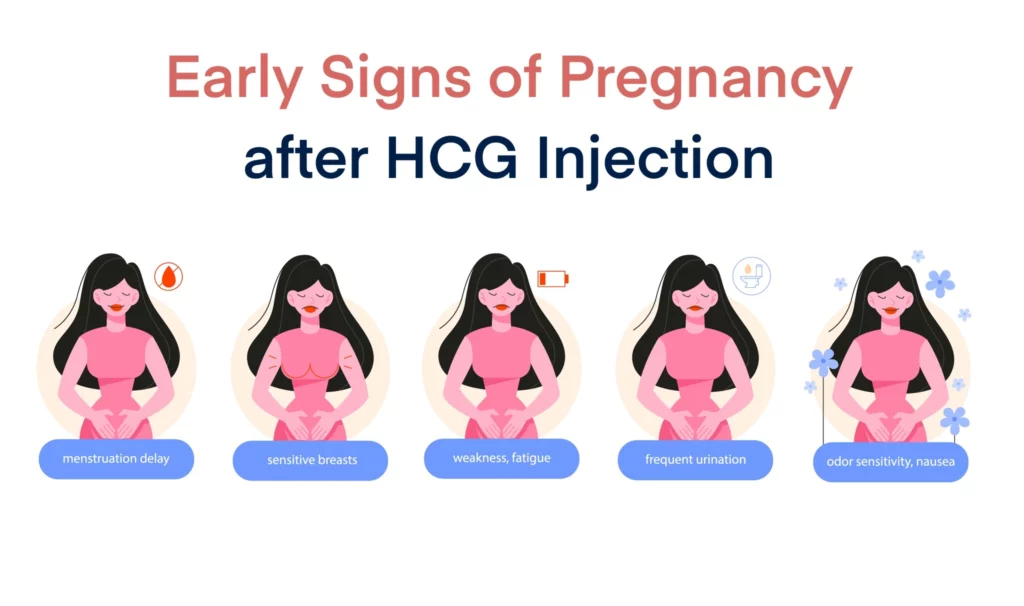Human chorionic gonadotropin (hCG) treatment is a hormonal therapy used in the field of reproductive medicine to address various causes of female infertility. Buy Hcg Injections 10000 Iu is a hormone produced by the placenta during pregnancy and plays a crucial role in supporting pregnancy by stimulating the production of progesterone from the corpus luteum in the ovary. In infertility treatment, hCG is primarily used to induce ovulation in women who have difficulty conceiving due to irregular or absent ovulation. In this blog, we will explore the uses, mechanisms, administration, effectiveness, and considerations of Hcg 10000 Iu Injection Cost treatment for female infertility.
Understanding Female Infertility:
Infertility affects approximately 10-15% of couples worldwide, with female factors contributing in about one-third of cases. Female infertility can result from various conditions, including ovulatory disorders (such as polycystic ovary syndrome or PCOS), hormonal imbalances, age-related decline in fertility, and structural abnormalities of the reproductive organs.
Mechanism of hCG in Female Infertility Treatment:
hCG acts similarly to luteinizing hormone (LH), a hormone normally released by the pituitary gland that triggers ovulation. During the menstrual cycle, LH surge stimulates the mature ovarian follicle to release an egg (ovulation). In cases where natural LH surge is insufficient or absent, hCG can be used to induce ovulation.
-
Stimulation of Ovulation: hCG injection mimics the LH surge, stimulating the final maturation and release of the egg (ovulation) from the dominant follicle in the ovary.
-
Support of Corpus Luteum: After ovulation, the ruptured follicle forms the corpus luteum, which produces progesterone to support the early stages of pregnancy. hCG helps support the corpus luteum, ensuring adequate progesterone production in the luteal phase of the menstrual cycle.
Indications for hCG Treatment:
hCG treatment is used in the following scenarios:
-
Anovulation: Women with irregular or absent ovulation due to conditions such as PCOS or hypothalamic amenorrhea.
-
Ovulation Induction: In assisted reproductive technologies (ART) such as intrauterine insemination (IUI) or in vitro fertilization (IVF), hCG is used to precisely time ovulation for optimal chances of conception.
-
Luteal Phase Support: In cases where there is concern about adequate progesterone production in the luteal phase, hCG may be used to support the corpus luteum.
Administration of hCG:
hCG is typically administered via injection, either subcutaneously (under the skin) or intramuscularly (into the muscle), depending on the specific protocol and healthcare provider’s recommendations. The timing and dosage of hCG administration are critical and vary depending on the patient’s menstrual cycle characteristics and treatment goals.
-
Timing: hCG injection is usually given when ultrasound monitoring indicates that the dominant follicle(s) are mature and ready for ovulation. This timing is crucial to ensure that ovulation occurs within the optimal window for conception.
-
Dosage: The dosage of hCG can vary based on the individual’s response to ovarian stimulation medications (if used) and the specific treatment protocol determined by the fertility specialist.
Effectiveness of hCG Treatment:
The effectiveness of hCG treatment in inducing ovulation and supporting fertility depends on various factors, including the underlying cause of infertility, the woman’s age, ovarian reserve (number and quality of eggs), and treatment adherence.
-
Ovulation Induction: hCG is highly effective in inducing ovulation in women with anovulatory conditions such as PCOS. Studies have shown ovulation rates of over 80% following hCG administration.
-
Luteal Phase Support: hCG supplementation can effectively support the corpus luteum and ensure adequate progesterone levels in the luteal phase, which is crucial for implantation and early pregnancy maintenance.
-
ART Success: In assisted reproductive technologies like IUI or IVF, precise timing of ovulation with hCG administration can optimize the chances of successful fertilization and embryo implantation.
Considerations and Precautions:
While hCG treatment is generally safe and well-tolerated, there are several considerations and precautions to keep in mind:
-
Monitoring: Close monitoring through ultrasound and hormone blood tests is essential to determine the timing of hCG administration and ensure appropriate response to treatment.
-
Multiple Births: Ovulation induction with hCG can increase the risk of multiple pregnancies (twins, triplets), particularly when combined with ovarian stimulation medications. This risk should be discussed with the healthcare provider.
-
Ovarian Hyperstimulation Syndrome (OHSS): In rare cases, ovarian hyperstimulation syndrome can occur, characterized by enlarged ovaries and fluid accumulation in the abdomen. Monitoring and adjustment of treatment protocols help minimize this risk.
-
Side Effects: Mild side effects of hCG may include injection site reactions, bloating, breast tenderness, and mood swings. These are usually transient and resolve after ovulation.
-
Patient Compliance: Adherence to treatment protocols, including timing of hCG administration and follow-up appointments, is crucial for the success of ovulation induction and fertility treatment.
Conclusion:
hCG treatment plays a vital role in the management of female infertility, particularly in cases of anovulation or assisted reproductive technologies. By mimicking the natural LH surge, hCG induces ovulation and supports the corpus luteum to optimize the chances of conception. Close monitoring, proper timing of administration, and individualized treatment plans are essential for maximizing the effectiveness of hCG therapy. If you are experiencing difficulty conceiving or have been diagnosed with ovulatory disorders, consult a fertility specialist to discuss whether hCG treatment may be appropriate for your specific situation. With the guidance of a healthcare provider, hCG therapy can help many women achieve their goal of becoming pregnant.

